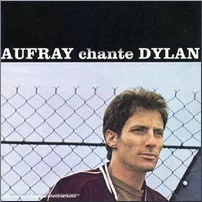Styles: Pop
Year: 1965
File: MP3@192K/s
Time: 82:18
Size: 114,4 MB
Scans: Front
(3:40) 1. Au coeur de mon pays
(4:32) 2. Ballade de Hollis Brown
(4:48) 3. Cauchemar psychomoteur
(3:36) 4. Ce n'était pas moi
(3:29) 5. Ce que je veux surtout
(6:38) 6. Comme ces pierres qui roulent
(4:24) 7. Dans le souffle du vent
(5:29) 8. Dieu est à notre côté
(4:35) 9. Knock knock ouvre toi porte d'or
(4:36) 10. l'Homme dota d'un nom chaque animal
(4:09) 11. La fille du nord
(4:17) 12. La mort de Hattiee Caroll
(3:17) 13. Le jour ou le bateau viendra
(4:11) 14. Les temps changent
(3:53) 15. N'y penses plus tout est bien
(4:53) 16. Nous serons libres
(3:00) 17. Si tu dois partir
(4:32) 18. Tambourine man
(4:11) 19. Tout le monde s'est plante
Year: 1965
File: MP3@192K/s
Time: 82:18
Size: 114,4 MB
Scans: Front
(3:40) 1. Au coeur de mon pays
(4:32) 2. Ballade de Hollis Brown
(4:48) 3. Cauchemar psychomoteur
(3:36) 4. Ce n'était pas moi
(3:29) 5. Ce que je veux surtout
(6:38) 6. Comme ces pierres qui roulent
(4:24) 7. Dans le souffle du vent
(5:29) 8. Dieu est à notre côté
(4:35) 9. Knock knock ouvre toi porte d'or
(4:36) 10. l'Homme dota d'un nom chaque animal
(4:09) 11. La fille du nord
(4:17) 12. La mort de Hattiee Caroll
(3:17) 13. Le jour ou le bateau viendra
(4:11) 14. Les temps changent
(3:53) 15. N'y penses plus tout est bien
(4:53) 16. Nous serons libres
(3:00) 17. Si tu dois partir
(4:32) 18. Tambourine man
(4:11) 19. Tout le monde s'est plante
Hugues Aufray merits an interesting footnote in Bob Dylan history for translating Dylan's compositions into French in the mid-'60s. His 1965 LP, Aufray Chante Dylan, could be one of the first times an all-Dylan cover album was done by a non-English-singing performer. Though an overall respectable interpretation (entirely in French) of 11 early Dylan songs, it's stylistically uneven, almost as if it's taken from several different eras (or at least gaining its inspiration from several different phases of Dylan's development). Some tracks, like "Dieu Est a Nos Cotes" ("With God on Our Side"), are plaintive acoustic guitar strum-and-voice-only arrangements much like those heard on Dylan's early records.
Others add somewhat hokey, dated background voices ("Le Jour Ou le Bateau Viendra," aka "When the Ship Comes In") and strings ("La Fille du Nord," aka "Girl from the North Country") in an uneasy pop-folk fusion that sounds like attempts to put the songs in more commercial dressing. Still others sound like they're trying to hop the mid-'60s folk-rock bandwagon ("Ce Que Je Veux Surtout," aka "All I Really Want to Do") or imitate the tense blues-rock-oriented sound of Dylan's own 1965 folk-rock records ("Cauchemar Psychomoteur," aka "Motorpsycho Nightmare"). Aufray sings the material with earnest, slightly gritty dignity, though without particularly distinctive personal imagination. By no means among the better batches of Dylan covers of the period, it's nonetheless by no means among the worst, and historically interesting at the least. ~ Richie Unterberger http://www.allmusic.com/album/aufray-chante-dylan-mw0001157445









